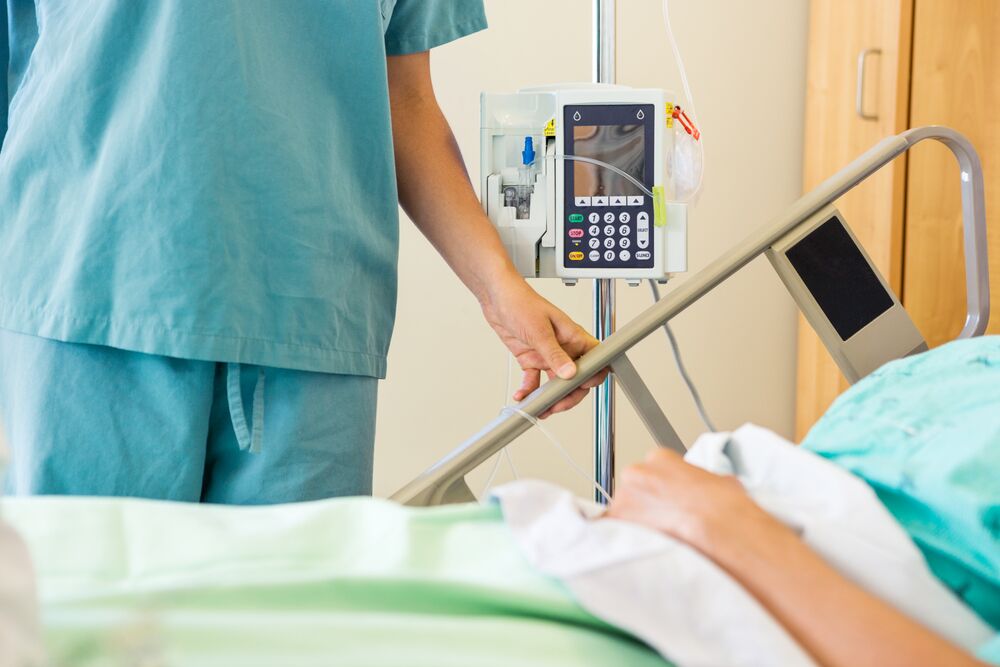
Key Takeaways:
- Drug detox in Philadelphia, PA, is an essential first step in recovery from substance use disorder. It’s highly recommended that qualified medical professionals oversee it.
- There are several drug and alcohol detox programs in Philadelphia, each designed to address specific needs and manage withdrawal symptoms.
- Continued support and counseling play a vital role in long-term recovery, offering ongoing guidance for individuals in their recovery journey.
If you or someone you know is facing drug or alcohol addiction challenges, contact UNISON Rehab at (267) 440-7205 to explore detox treatment options in Philadelphia.

What is drug detox?
Drug detox, short for drug detoxification, is a medical process to safely manage the acute physical symptoms of withdrawal from drugs or alcohol. Essentially, it’s the body’s way of processing and removing the toxins accumulated from prolonged substance use. At UNISON Rehab in Philadelphia, the detox process is structured to ensure patients experience withdrawal in a controlled and monitored environment, minimizing potential risks and optimizing comfort.


Why is drug detox necessary?
Detoxification serves as the foundational step in the broader scope of addiction treatment. When an individual stops using drugs or alcohol, they might experience withdrawal symptoms, ranging from mild discomfort to severe physical and psychological reactions. Addressing these symptoms in a controlled setting, like in our drug detox center in Philadelphia, ensures safety and lays the groundwork for the subsequent recovery phases. Additionally, a successful detox can reduce the risk of relapse, as it breaks the immediate cycle of substance use and allows individuals to enter the following stages of treatment with a clearer mind and stabilized physical condition.
It is not advisable to attempt drug detox at home. Withdrawal symptoms can be severe and unpredictable, and there is a risk of serious medical complications. If you are thinking about detoxing, please consult with a doctor or contact UNISON Rehab to help you get started. We can help you develop a safe and effective detox plan and refer you to additional resources through the Substance Abuse and Mental Health Services Administration (SAMHSA).
Benefits of Inpatient Drug Detox
Inpatient drug detox offers a focused and structured environment for recovery, minimizing external distractions and ensuring safety. This approach provides numerous advantages, including:
Physical Safety
Some withdrawal symptoms can be severe or life-threatening if not managed appropriately. Medical professionals can monitor these symptoms in a supervised detox setting and intervene when necessary.
Foundation for Recovery
Completing detox provides a solid starting point for the subsequent therapeutic interventions. With drugs or alcohol fully purged from the system, individuals can focus more intently on long-term recovery strategies.
Mental Clarity
Detox helps clear the fog of drugs and alcohol, allowing individuals to approach subsequent treatments with a clearer mindset, which can be crucial for therapies that require introspection and focus.
Improved overall health
Drug abuse can devastate a person’s physical and mental health. Detox can help to reverse some of these effects and improve overall health.
Reduced Relapse Risk
By managing the often intense cravings and discomfort of withdrawal in a controlled setting, the immediate risk of returning to substance use is reduced.
Supportive Environment
UNISON Rehab provides a supportive environment where individuals are surrounded by professionals and peers who understand the challenges of withdrawal and recovery. This can make the process more manageable.
Who should consider drug detox?
Anyone grappling with drug or alcohol dependence should contemplate undergoing a detox. Specific indicators that might signal the need for detox include:
It’s essential to understand that detox is most effective when followed by further treatment. While detox addresses the immediate physical effects of substance abuse, comprehensive treatment is required to tackle addiction’s underlying psychological and behavioral aspects.
Our Programs
Different Types of Drug Detox
Understanding the various detox methods available is crucial in making an informed decision. Here are the primary types:
how it works
What to expect during the drug detox process
The detox experience can vary based on the substance of abuse, the individual’s physical condition, and the duration of addiction. However, here’s a general overview of what one might expect at UNISON Rehab:

Admissions
The process begins with a thorough intake procedure, where the individual’s medical and substance use history is gathered.

Evaluation
Medical professionals will assess the individual’s physical and psychological condition, creating the foundation for a personalized detox plan.

First 24 Hours
Post admission, patients are introduced to the facility, meet their care team, and undergo preliminary assessments. The actual detox process typically begins during this period, and the onset of withdrawal symptoms might be experienced.

Treatment Plan Development
Based on evaluations, a personalized treatment plan is crafted to address the unique needs and challenges of the individual.

Ongoing Monitoring
Throughout the detox phase, medical professionals monitor patients, ensuring their safety, comfort, and well-being. Adjustments to treatment protocols might be made based on individual responses.

Why UNISON Rehab?
UNISON Rehab is committed to providing our patients with the highest quality of care. We offer a number of unique advantages, including:
- Low client-to-therapist ratios: This ensures our patients receive individualized attention and support from our experienced and compassionate therapists.
- Specialized treatment programs: We offer a variety of specialized treatment programs to address each patient’s unique needs, including dual diagnosis treatment, LGBTQ+ client programs, and more.
- Aftercare planning: We work with our clients to develop personalized aftercare plans to help them maintain their sobriety and prevent relapse after completing treatment.
- Sober living options: We offer sober living options to provide our clients with a supportive and structured environment to continue their recovery.
Your post-detox chapter at UNISON Rehab is not merely a subsequent step; it’s a collaborative journey towards enduring recovery and well-being. We are here to help you build a strong foundation for your sobriety and forge a brighter future.
Contact us today at (267) 440-7205 to learn more about our post-detox treatment programs and how we can help you achieve your recovery goals.


